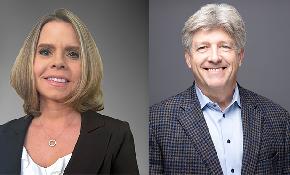From a vantage point that started in 1970 (he refers to it as the Pleistocene Era), George Larsen, CCIM Institute, has seen a lot. And the commercial real estate veteran has much to share, often with a wry twist.
In his experience, a career can often start with an unexpected chain of events, like when he “took the first job I was offered” after getting his MBA from Arizona State University on the G.I. Bill.
“I went to work for a development company in the then small city of Tucson,” he says. “I have been working in one aspect or another of commercial real estate in Tucson for 51 years.”
That includes co-founding Larsen Baker, whose affiliates develop, own, and manage a portfolio of retail, office, and industrial properties in Southern Arizona totaling approximately 3.9 million sq. ft. Not bad for stumbling into an industry.
Even if you don’t have a burning desire to own and manage real estate from the time you were a tot, the months and years put into understanding one aspect or another of CRE pay off.
“Clients pay for your expertise,” Larsen says. “That’s why, at the national brokerage companies, young agents are required to specialize in just one type of commercial real estate. Those companies figure that you can become an expert—and thus useful to them—if you specialize in one aspect of CRE, like industrial or office.”
But you don’t want to specialize for too long. “That’s OK to start, but that won’t advance your career very far,” he says. “I think it’s better for young agents to move around within the CRE fields to advance their careers.”
For Larsen, a long career was the product of moving up in management. “If you can learn how to recruit, train, and manage agents, it’s surprising how those activities enhance your own skills,” he says. “You become an expert both in real estate and company leadership. By the time I was 35 years old, I owned and managed a real estate company with over 100 residential agents and a commercial department. I later spun off the residential component to concentrate on commercial real estate. But I always managed. There was a saying back in the 1980s: ‘If you’re not the lead dog, the scenery never changes.’”
“I was lucky enough to start my career in real estate with an MBA, but I did not really know commercial real estate until I earned my CCIM designation in 1982,” Larsen says, calling it the key to his success. “That real estate training is the most valuable self-help wealth building education program in the country. With the CCIM Institute education, I had the analytic skills and the confidence to uncover deals others overlooked. I was able to identify commercial properties with the potential to reward my clients with 20% or more annual investment returns.”

















 Copyright © 2024 ALM Global, LLC. All Rights Reserved.
Copyright © 2024 ALM Global, LLC. All Rights Reserved.